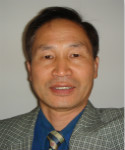| Biography | |
|---|---|
 Prof. Ik Ki Kim Dongguk University, Republic of Korea |
|
| Title: Different patterns of the COVID-19 and its responses in China, Korea and Japan | |
| Abstract: As of mid-February 2020 China and Korea had the world’s highest numbers of coronavirus disease 2019 (COVID-19) infections and deaths. Both countries employed intensive containment polices to fight the epidemic, which turned out to be effective, and their numbers of infections and deaths substantially declined. Japan delayed the adoption of containment and mitigation policies, mainly with a view to the Olympic Games, and is still suffering a very serious situation. This paper compares the different patterns of the diffusion of the COVID-19 and its responses in these three countries. China, Korea, and Japan are East Asian countries that share many socioeconomic characteristics. The factors that affect these countries’ responses to COVID-19 include the political system and government competence, medical systems and health insurance, the preparedness of public services, the attitude of leadership towards COVID-19, and public awareness of COVID-19, given previous experiences of the SARS (2003) and MERS (2015). Considering the rapid process of population aging in these countries, population composition is another important variable since the COVID-19 is more vulnerable to the elderly. Keywords: China, Korea, Japan, responses to COVID-19, control measures | |
| Biography: Education Ph.D. Sociology, The University of Michigan, Ann Arbor, MI, U.S.A. (1984) M.A. Sociology, University of South Carolina, Columbia, SC, U.S.A. (1980) B.A. Sociology, Seoul National University, Korea (1976) Awards Research on the sustainable development of Korea in the period of low fertility and population aging. National Research Council for Economics, Humanities and Social Sciences. 2014. A Time-spacial Study on Asian Pop-culture. Korea Research Foundation. (2012-2014) Grant for the Korean wave in the context of the East Asia. Asia Research Center of Seoul National University (2011-2012) Grant for a comparative study on the living arrangements of the urban elderly between Seoul, Incheon in Korea and Shandong province in China. Korea Research Foundation. (2009-2010) Grant for a Study on the Current Situation of young Korean Chinese in China. Korean Institute of Youth Development (2007) Grant for a Study on the Size and Current Situation of Korean Students in China. Korean Institute of Youth Development (2006) Grant for a Study on the Socio-cultural Integration of Koreans after the Unification (2003) Grant for a Comparative Study of the Living Arrangements of the Elderly and Improving the Quality of Life of the Elderly in Korea and Japan, Korea Research Foundation (1997-1998) Grant for a Comparative Study of Urban Environmental Management in 6 Asian Countries, Korea Research Foundation (1995-1996) Grant for a study of the Korean elderly, Institute of Gerontology, The University of Michigan (1993) Grant for a study on Community-Based Environmental Management in Wolgoksa-dong, Korea Research Foundation (1992) Grant for a study on Residential Patterns of the Urban Poor, Korea Research Foundation (1990) Grant for the 18th Summer Seminar on Population, East-West Population Institute, Hawaii (1987) National Institute of Health Traineeship in Demography, The Population Studies Center, The University of Michigan (1980-1984) Rackham Dissertation Grant, The University of Michigan Graduate School (1983) ICPSR Summer Grant, Institute for Social Research, The University of Michigan (1981) Graduate Fellowship, University of South Carolina (1978-1980) Population Fellowship, The Population and Development Studies Center, Seoul National University (1976-1978) | |
